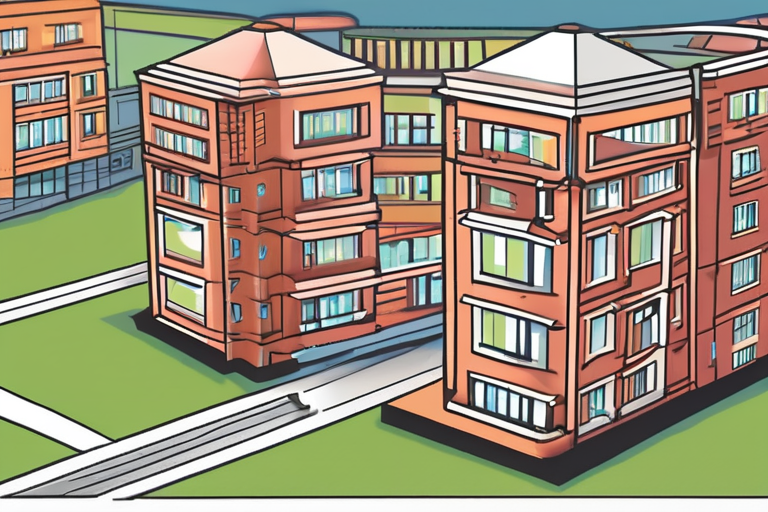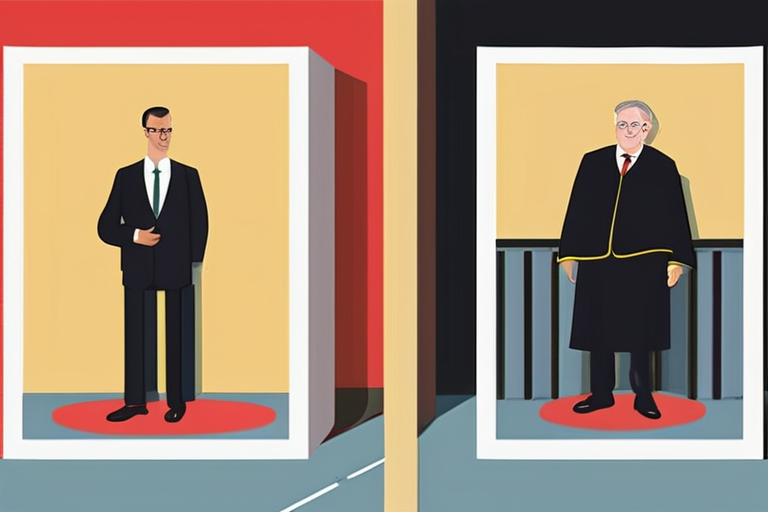The High-Stakes Housing Bill: A Tale of Two Senators and a Nation's Future
As the sun rises over the nation's capital, two senators, Tim Scott (R-SC) and Elizabeth Warren (D-MA), sit across from each other in a crowded Senate hearing room. The air is thick with tension as they engage in a heated debate about the future of American housing. For millions of Americans, this bill is more than just a piece of legislation – it's a lifeline to stability, security, and a place to call home.
The massive federal housing bill, known as the "Housing for All" act, aims to address the nation's crippling affordable housing crisis. With over 11 million renters struggling to pay their rent on time, this bill is the most significant attempt in decades to tackle the issue. But what exactly does it entail, and why are its stakes so high?
A Crisis of Proportions
The US has a long history of neglecting its affordable housing needs. From the Great Depression to the present day, successive administrations have failed to address the root causes of the crisis: inadequate funding, inefficient allocation of resources, and a lack of coordination between federal, state, and local governments.
Today, the situation is dire. Renters are shouldering an increasingly heavy burden, with 44% of renters dedicating over 30% of their income towards rent alone. This has led to widespread displacement, poverty, and even homelessness. The consequences are far-reaching: decreased economic mobility, reduced social cohesion, and a diminished quality of life for millions.
A Tale of Two Senators
As the Senate Banking Committee chair and ranking member, respectively, Scott and Warren have been at the forefront of this debate. Their differing perspectives reflect the deep-seated divisions within the party on how to address the crisis.
Scott, a Republican from South Carolina, advocates for market-driven solutions, emphasizing the need for private investment and innovative financing mechanisms. He believes that by empowering local communities and incentivizing developers, we can unlock new sources of affordable housing without overburdening taxpayers.
Warren, a Democrat from Massachusetts, takes a more radical approach. She argues that the crisis is not just an economic issue but also a moral one. She advocates for increased federal funding, stricter rent control measures, and a comprehensive overhaul of the nation's housing policies to prioritize affordability and equity.
The Human Cost
As we delve deeper into the world of policy wonks and legislative jargon, it's essential to remember the human faces behind this crisis. Meet Maria, a single mother from Los Angeles who works two jobs just to keep a roof over her family's head. Her rent has increased by 50% in the past year alone, forcing her to choose between paying bills or putting food on the table.
Or consider Juan, a veteran living in New York City, struggling to find affordable housing after serving his country. His story is one of countless others, each with their own unique struggles and triumphs.
The Stakes are High
As the Senate debates this historic bill, the stakes are higher than ever before. Will we choose to prioritize the interests of developers and investors or those of the most vulnerable members of our society? Will we opt for incremental reforms or a comprehensive overhaul?
The outcome will have far-reaching implications for generations to come. If passed, the Housing for All act could:
Provide billions in new funding for affordable housing initiatives
Establish stricter rent control measures to protect tenants
Overhaul the nation's housing policies to prioritize affordability and equity
However, if it fails, the consequences will be dire: continued displacement, poverty, and homelessness; a further erosion of economic mobility and social cohesion.
A Nation's Future
As we watch this drama unfold in Washington, we're reminded that policy decisions have real-world consequences. The fate of Maria, Juan, and millions like them hangs in the balance. Will we choose to be a nation that prioritizes the needs of its most vulnerable members or one that perpetuates inequality and neglect?
The high-stakes housing bill is more than just a piece of legislation – it's a test of our values as a society. As we navigate this complex web of interests, ideologies, and competing demands, let us not forget the human faces behind this crisis. The future of American housing hangs in the balance, and it's up to us to decide what kind of nation we want to be.
*Based on reporting by Vox.*



 Hoppi
Hoppi

 Hoppi
Hoppi

 Hoppi
Hoppi

 Hoppi
Hoppi

 Hoppi
Hoppi

 Hoppi
Hoppi











